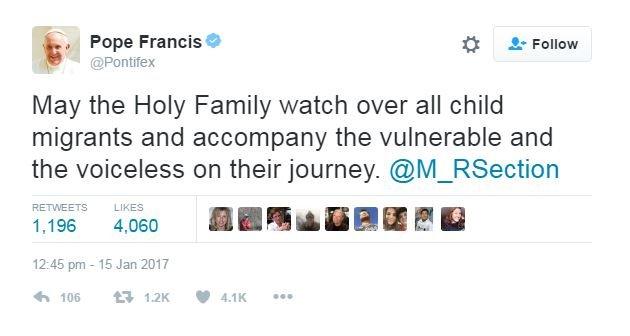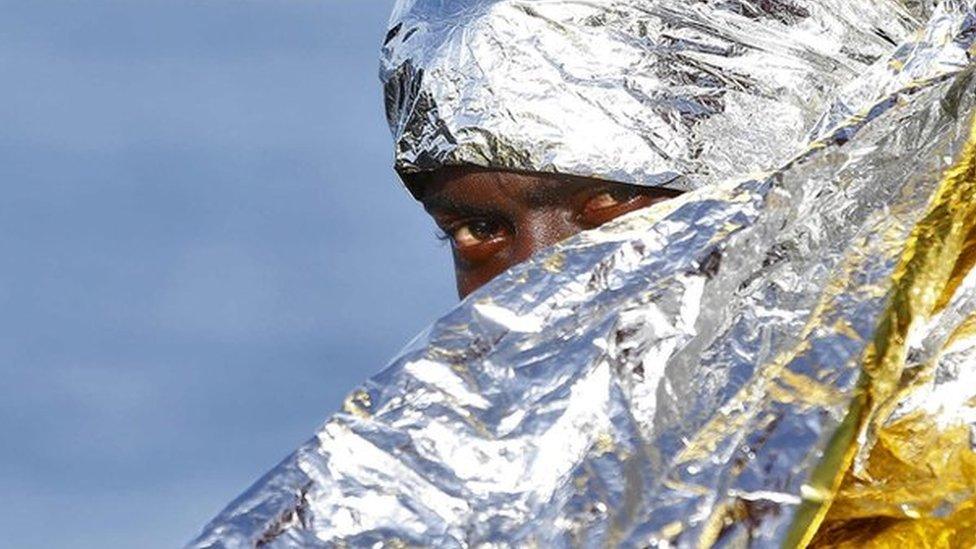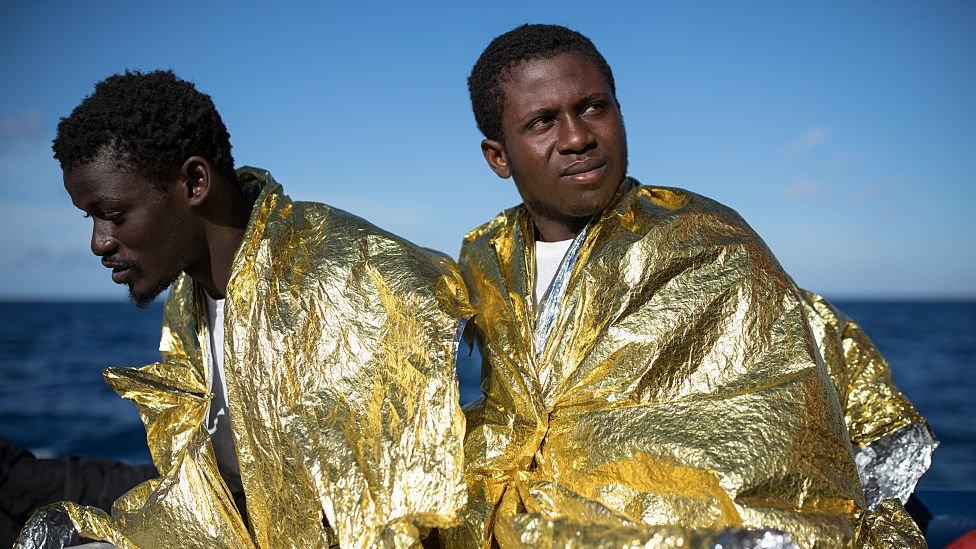Migrant crisis: About 100 feared drowned after boat sinks off Libya
- Published
Ed Taylor, MSF: "This has got to stop... it is just horrific, people are desperate and they are still coming".
About 100 migrant passengers are feared drowned in the Mediterranean Sea after their boat sank off the coast of Libya.
Eight bodies were recovered from the water on Saturday, and four people were rescued, the Italian coastguard said.
But difficult conditions hampered an overnight search for survivors, and at least 90 people are still missing.
The boat sank between Libya and Italy, about 30 miles (50km) from the Libyan coast.
The search, involving several ships and air support, continued on Sunday.
It is unclear what the nationalities of the migrants involved are.
'Horrific'
On Friday, the Italian coastguard rescued about 550 migrants making the journey across the Mediterranean.
Doctors Without Borders (MSF), which was involved in the rescue, said that in one case it found 123 people crammed on to a single inflatable dinghy.
Ed Taylor, who is on board the MSF rescue ship Aquarius, told the BBC the situation in the Mediterranean was "horrific", and desperate people were still making the trip despite the cold and wet conditions.
"It's incredibly difficult to operate at the moment," he said.
Meanwhile, Flavio Di Giacomo, from the International Organisation for Migration (IOM), said survivors of other recent crossings claimed they had been forced out to sea, despite the poor weather.
"Those migrants that arrived lately... they told us they didn't want to leave when they arrived at the beaches to see that the situation of the weather was so bad.
"But smugglers have forced them to leave and to get on these rubber dinghies, which are really unseaworthy vessels.
"After a few hours of navigation they start to take on water."
The number of migrants travelling to Europe by land has dropped since the height of the migrant crisis in late 2015, but sea crossings remain both popular and dangerous.

Pope Francis called for more to be done during the Catholic Church's day of migrants on Sunday
More than 1,000 people have arrived in Europe by sea in the first two weeks of 2017, the UN refugee agency (UNHCR) estimates. Before Saturday's incident, it estimated 11 people had died or were missing.
In 2016, the UNHCR said 5,000 people died trying to reach Europe by Mediterranean routes - the highest number yet. Many of those making the journey are children.
The UN children's charity, Unicef, said this week that 25,800 unaccompanied migrant children arrived in Italy by sea in 2016, double the number of the previous year.
It said most of those children arrived in Italy after making the sea crossing from Libya - and the majority had come from Eritrea, Egypt, the Gambia and Nigeria.
On Sunday, which is the world day of migrants and refugees in the Catholic Church, Pope Francis called for "every possible measure" to protect young migrants, saying they face many dangers and should be offered protection "as well as integration".

A note on terminology: The BBC uses the term migrant to refer to all people on the move who have yet to complete the legal process of claiming asylum. This group includes people fleeing war-torn countries such as Syria, who are likely to be granted refugee status, as well as people who are seeking jobs and better lives, who governments are likely to rule are economic migrants.
- Published23 December 2016

- Published29 November 2016
